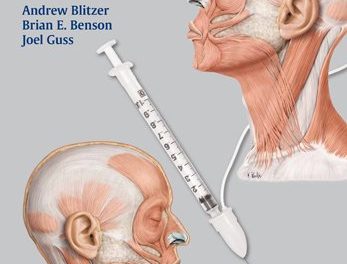Author: Jim Clifton, Chairman of Gallup
Publisher: Gallup Press, 225 pages
Book Review by Paiso Jamakar
This is truly an eye-opening book with high impact on what Gallup polls have found to be the No.1 issue for seven billion people in the world today: jobs. It is written in a bold, no-holds-barred style by Jim Clifton, chairman of the now-global Gallup organization, with 40 offices worldwide in 30 countries.
Jobs are what the seven billion people on earth all want, more than anything else, Jim Clifton says, for themselves, for their families, and through their leaders, for their nations. The imperative that jobs are the primary want and need in the world today is based on six years of global data collection and tabulation by the Gallup organization, he reveals.
It makes but perfect sense that jobs are desired more than love, more than freedom, more than anything else. After all, the main cause of most wars has been then need for economic well-being, which is achieved through the plentiful availability of good jobs, Clifton points out.
The need for jobs has also been the subject of constant, recurrent talk by President Obama. Whereas there has been so much talk by him about job creation, the fact is, based on current data from the US Bureau of Labor Statistics, some two-and-a-half million jobs have been lost since February 2009, just days after Obama took his oath of office. I believe it is perhaps because Obama has no knowledge how jobs are created and has had no experience creating them. Instead of job creation, America has had net job loss.
Clifton points out that the United States is losing the worldwide war for jobs because the growth of its gross domestic product (GDP) has been slowing down compared to that of other countries such as China, for example. Job creation and GDP growth are closely related, he says. When there is greater economic activity, more goods are produced, requiring more people to create those goods, sell and distribute them. That creates jobs.
Services are also needed when more goods are made. People are needed before, during and after the manufacturing process to evaluate the products for safety and efficiency for example. Advertising, retailing and a myriad of other services are needed when more goods are produced. These demands, needs and activities create service jobs.
While the United States is still the world’s largest economy with about $15 trillion in GDP or total economic output (about two-and-half times No.2 China’s $6 trillion GDP) its growth rate in recent years is much slower than China’s. The US had faster economic growth in years past. As a matter of fact, in some recent quarters, America’s GDP has shrunk.
One reason for the slowing of growth in America is its very high and constantly rising cost of government. Currently more than 46 percent of America’s GDP is consumed by spending at four levels of government: Federal, state, county and local (cities-towns).
Governments do not create any new income for the economy, but rather consume it.
On the other hand, the private sector (companies) creates new income to feed the basically consuming public sector.
The other drag on the U.S. economy is its massive current debt of $14.98 trillion, which represents 99.75 of its GDP. Annually rising deficit-spending in the trillions of dollars in Obama’s Federal deficit-spending budgets and cost of interest on the debt are slowing down the growth of the GDP, since those trillions are not being re-invested to raise GDP. As pointed out earlier, slowing GDP causes loss of jobs.
For up-to-date information on the economic balance sheet and operations of America as a whole and its people in particular, readers can go to www.USDebtClock.org.
Clifton asserts that the most severe problem America faces is not what many other people think it is. It is not terrorism, although it is a significant one. Runaway government spending is and will continue erode America’s economy for decades, but it can be reduced significantly with the right leadership. Are rising healthcare costs America’s most pressing problem, wrecking its economy and the health of its people? No, although this is one its most serious ones.
What about the state of the environment – is that America’s most immediate problem?
He says that environmental degradation, if left unchecked will destroy mankind, but not today or even next year.
Jim Clifton says point-blank: “None of these problems matter when compared with the likely possibility of America slowly and then suddenly going broke – because none of these problems are so near. Going broke is what happens when there aren’t enough good jobs”
He compares what would going broke nationwide would look like, to statewide and citywide examples. California for example, cannot pay its pensions. Illinois and Michigan may not be able to able to pay back the money lent to them by the people who hold their bonds. And Detroit, with its high level of unemployment and abandonment of businesses and homes, has some areas that look like ghost towns.
This is the stark warning Jim Clifton gives to the nation and particularly to its political leaders at all levels: “America goes broke when its GDP falls and jobs cannot be found. A country goes broke one company at a time and then one citizen at a time. It grinds down. And it’s happening now. You and I, our friends and relatives, are going broke now because the United States of America is going broke…all of this is happening now because jobs and GDP live together, are the cause and effect of one another, and survive together and create one another. They are the chicken and the egg.”
Gallup’s numbers show that while unemployment in the United States is around ten percent – about the same as that of the U.S. Bureau of Labor Statistics – its underemployment percentage, which is a better measure of the country’s economic health, is about 20 percent. Clifton says that the way the U.S. government counts employment is that if you have lost your job, but are working one hour a week mowing your neighbor’s lawn and getting paid $20 for it, you are counted as “employed.”
So we see here another huge problem in America – misinformation by the major news media – which can and may very well hurt the economy badly when suddenly, the correct information comes out on a mass scale. Information and human behavior play critical roles on the economy, studies have shown.
Jim Clifton has done a marvelous job of informing the public of the coming global jobs war, where America continues to lose jobs permanently to faster-growing, dynamic countries such as China, India, other places in Asia and the rest of the world. He is to be commended for providing crucially important information and a critical warning to America to correct its present downward economic course.
In this book review, we have not covered the solutions Clifton presents to the economic crisis the U.S. is facing. I leave that to you to discover. I urge you all to buy this highly useful book and find out for yourselves what his recommendations are. You can then perhaps gain some insight on what your own next financial, personal and career moves should be, to secure your future.






